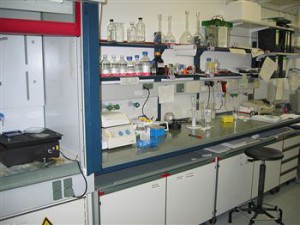
A FLU-killing protein that occurs naturally in the human body as part of our immune response could lead to new treatments for the virus, scientists have found.
Antimicrobial host defence peptides are key components of our innate immune response that increase in number during infection and inflammation.
They are known to possess antibacterial and antiviral qualities – but their impact on the Influenza A virus has not been assessed.
Now researchers have shown that some of these peptides “possess potent antiviral activity” against the flu, which is thought to be responsible for around 250,000 deaths a year across the world.
The find will see the Scottish scientists explore ways to modify the natural peptides with a view to developing new treatments to fight the virus.
Dr Peter Barlow, Principal Investigator in Toxicology at Edinburgh Napier’s Centre for Nano Safety, and Dr Donald Davidson, MRC Senior Research Fellow at the MRC / Edinburgh University Centre for Inflammation Research developed the research in tandem with the Centers for Disease Control and Prevention in the USA.
Exciting
Dr Barlow said: “This is a fascinating discovery. Our study demonstrates that antimicrobial peptides possess potent antiviral activity against the influenza virus.
“The data we gathered suggests that new treatments that aim to increase levels of these peptides in someone infected with the flu virus may provide significant protection against disease.
“I would stress that a peptide-based treatment is still some way off, but this is an exciting development.
“There are a limited number of antiviral drugs for Influenza A, and the nature of the virus is that it constantly mutates to build up resistance, so we need to find new ways to combat it.”
The research contributed to Dr Davidson recently being awarded £2 million funding from the Medical Research Council to further develop these therapeutic approaches for infectious lung diseases.
He said: “Antimicrobial host defence peptides are clearly a critical part of human body’s natural defence system. By understanding their role we may be able to promote natural production in vulnerable individuals.
“In addition, by manipulating these peptides we have the exciting potential to develop treatments that both kill bacteria and viruses, such as influenza, and boost the body’s natural immune system at the same time.”
The peer-reviewed paper, LL-37 and Influenza, is published on the PloS ONE website.

